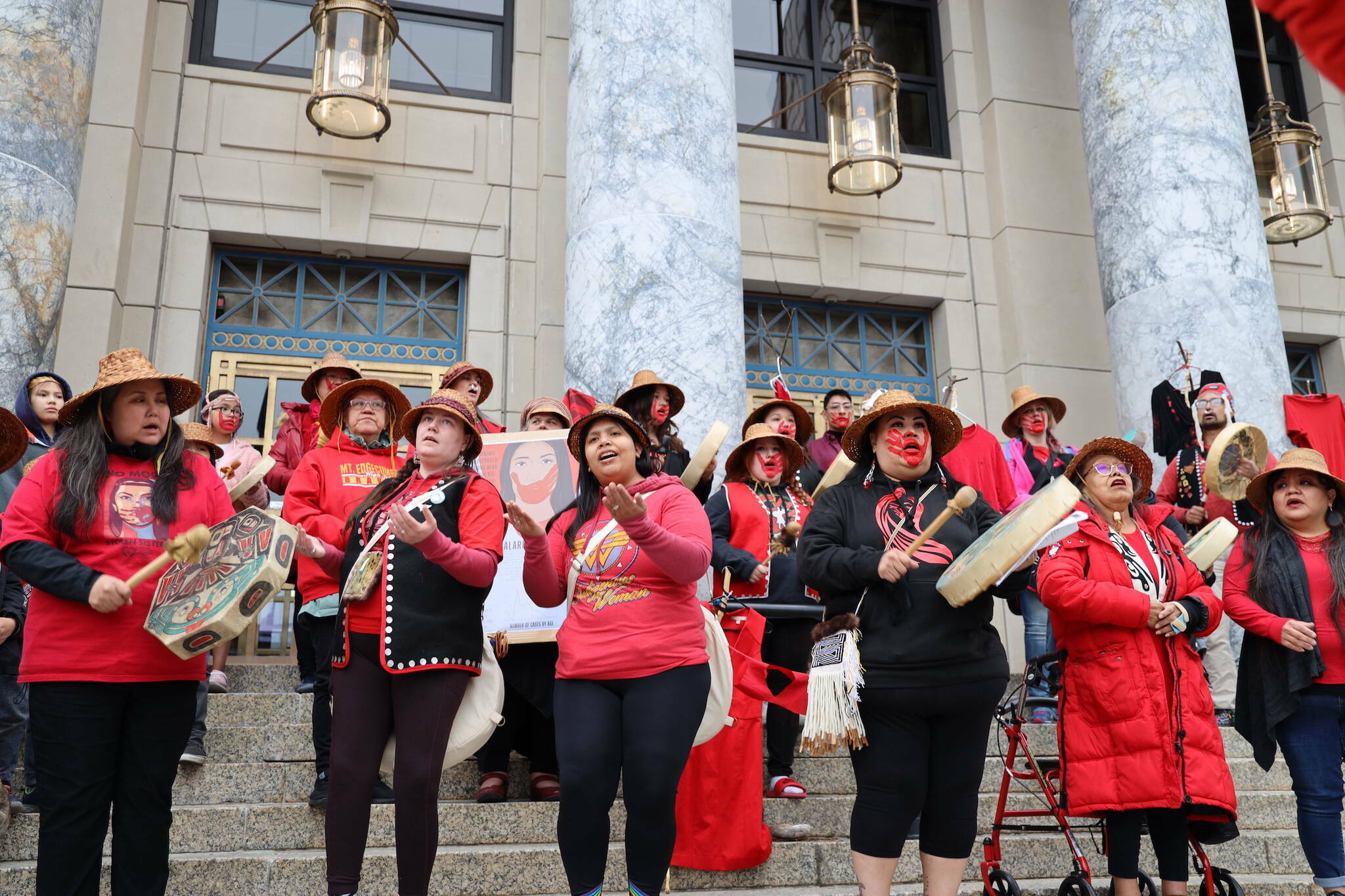The addition of four federal specialists to work on missing or murdered Indigenous persons cases in Alaska — including one possibly based in Juneau — was announced Wednesday by the U.S. Department of Justice.
Three assistant U.S. attorneys and one coordinator are being assigned to Alaska as part of a 44-person Missing or Murdered Indigenous Persons Regional Outreach Program, according to a Justice Department statement.
The additional staff will supplement the 32 U.S. attorney positions already in Alaska by focusing on areas and federal crimes largely specific to MMIP cases, said Lane Tucker, the U.S. attorney for the district of Alaska, in an interview with the Empire.
“What this is going to do is give us three additional prosecutors who can focus not only on rural crimes in Alaska, but also work with rural communities and rural village tribes to enhance their public safety missions, whether that’s tribal courts, tribal police, those kinds of things,” she said.
The new prosecutors will also be able to supplement state prosecutors and other officials, Tucker said.
“The state obviously has limited resources and we’d be able to take on a lot of cases in two different ways,” she said. “One is where there’s stiffer penalties for federal crimes, and for bigger and more complicated cases that the state might not have the resources to prosecute.”
Tucker said she hopes federal attorneys can also assist with state-level prosecutions, although jurisdictional issues are among the specifics still being determined.
“We’re working very closely with the state so we can get the most bang for the buck, so to speak, and promote safety in rural Alaska,” she said.
A coordinator for MMIP cases in Alaska has existed recently on a year-by-year contract basis, but the position is now a permanent year-round appointment, Tucker said.
Tucker said she hopes to place one of the new attorneys in Anchorage, one in Fairbanks and one in Juneau once they’re hired, which should occur within the next couple of months. She said the caseload in Southeast Alaska is similar to other parts of the state, although the types of cases can vary by region and in Southeast Alaska they’re linked to large fluctuations in the number of people here seasonally.
“I see a lot of potential human trafficking cases and drug cases,” she said, referring to the region. “And I think the influx of industries into Southeast in the summertime in particular tends to increase those kinds of crimes…I think given the tourism industry, the fishing industry, the cruise ship industry, a lot of various types of crimes come in with the seasons. And I think generally nationwide crime goes up in the summer. And I think that’s particularly true here in Alaska in those areas.”
One of the biggest ways a new regional federal attorney can help is by actively following up on reports of cases, including “cold cases” from years ago, said Jeni Brown, a member of a Violence Against Women Task Force established by the Central Council of the Tlingit and Haida Indian Tribes of Alaska, where she works as a community navigator for tribal operations.
“There’s always a huge process you have to go through when somebody goes missing and it’s never a good thing,” Brown said, saying many of the shortcomings in the system remain more than three decades after she first reported such cases involving relatives. “Look into these cases. There are records of all these things.”
• Contact Mark Sabbatini at mark.sabbatini@juneauempire.com or (907) 957-2306.

